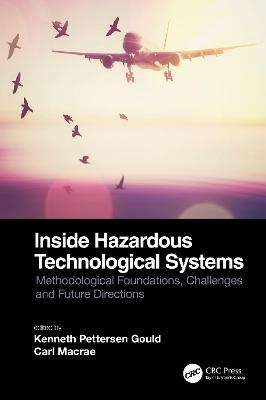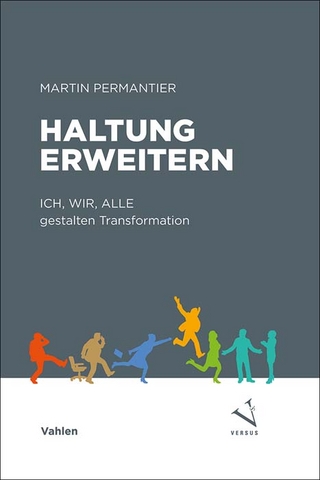
Inside Hazardous Technological Systems
CRC Press (Verlag)
978-0-367-22694-7 (ISBN)
The book brings together a diverse perspective to explore the practice of conducting qualitative research as well as to debate the quality of research and knowledge, drawing on a range of different perspectives and traditions. It offers novel and innovative developments in data collection and data analysis methods and tools that can be applied to safety, risk, and accident analysis in complex systems. It also will present practical issues associated with data access and empirical research in challenging and high-stakes environments.
This book will provide academics, researchers, students, and professionals in the fields of safety, accident analysis, and risk with a broad-range and expert guide to the key issues and debates in the field, as well as a set of exemplary cases and reflective narratives from leading researchers in the field.
Kenneth Pettersen Gould is associate professor in risk management and societal safety at the University of Stavanger, specializing in organizational risk and safety management. His research concerns hazardous technologies; how risk, reliability, safety and security is analysed and managed in organizational contexts; and how regulatory and management strategies in these areas can be further developed. Carl Macrae is Professor of Organisational Behaviour and Psychology in the Centre for Health Innovation, Leadership and Learning at Nottingham University Business School. His research examines how organisations manage safety, reliability and resilience; how people make sense of and learn from unexpected events; and how organisational and regulatory systems can be designed to support learning and improvement. Carl regularly advises organisations, regulators and policymakers on challenging safety and risk issues. Carl is also a Professor II in the SHARE Centre for Resilience in Healthcare at University of Stavanger, Norway.
Foreword: qualitative inquiries into safety research
Silvia Gherardi
1.Hazardous technological systems from the inside out: An Introduction
Kenneth Gould & Carl Macrae
2.Turner and the Sociology of Disasters
Andrew Hopkins
3.Access, Methods and Knowledge when exploring High-hazard Systems: Lessons from the Past for the Future
Mathilde Bourrier
4.In the footsteps of Turner…from grounded theory to conceptual ethnography in safety
Jean-christophe Le Coze
5.Case studies in safety research
Stian Antonsen 6 Torgeir Haavik
6.Actor Network Theory and Sensework in Safety Research
Torgeir Haavik
7.Learning to do ethnography in complex systems
Christian H. Kuran
8.Work as planned, as done and as desired:A framework for exploring everyday safety-critical practice
Andrew J. Rae, David E. Weber, Sidney W. A. Dekker
9.Combining lenses: Pragmatics and action research in safety science.
Trond Kongsvik & Petter Almklov, Norway
10.Bridging an Unsafe Divide: In Search of Integrated Safety Science Research
Paul Schulman
11.Large-scale mixed-method evaluation of safety programmes and interventions
Graham Martin, Jane O´Hara & Justin Waring
12.Putting senior management in focus: A critical reflection on the direction of safety science research
Jan Hayes and Sarah Maslen
13.Politics, accident research and analysis: the evolution of investigation methods and practices in healthcare
Siri Wiig, Jeffrey Braithwaite & Geir Sverre Braut
14.Exploring the grey area of cyber security in Industrial Control Systems (ICS):
A qualitative research matter
Alberto Zanutto
Afterword: Connoisseurship, the Sociological Imagination and Turner’s Qualitative Method
Nick Pidgeon
| Erscheinungsdatum | 15.07.2021 |
|---|---|
| Zusatzinfo | 8 Tables, black and white; 4 Line drawings, black and white; 4 Illustrations, black and white |
| Verlagsort | London |
| Sprache | englisch |
| Maße | 156 x 234 mm |
| Gewicht | 453 g |
| Themenwelt | Wirtschaft ► Betriebswirtschaft / Management ► Allgemeines / Lexika |
| ISBN-10 | 0-367-22694-4 / 0367226944 |
| ISBN-13 | 978-0-367-22694-7 / 9780367226947 |
| Zustand | Neuware |
| Informationen gemäß Produktsicherheitsverordnung (GPSR) | |
| Haben Sie eine Frage zum Produkt? |
aus dem Bereich


